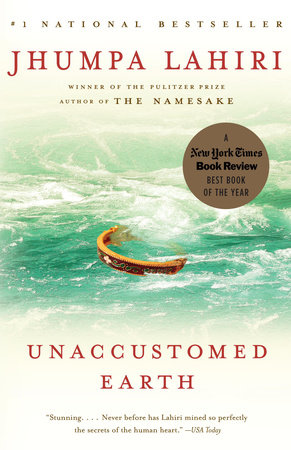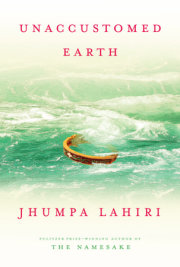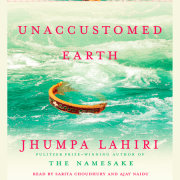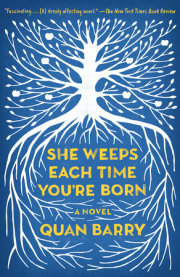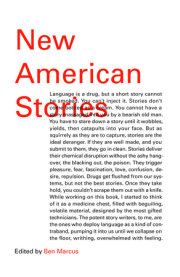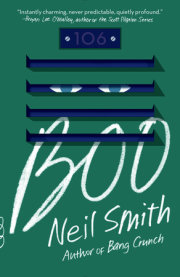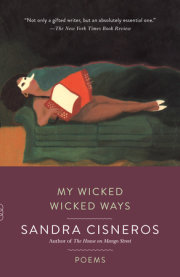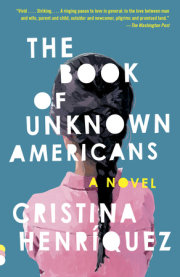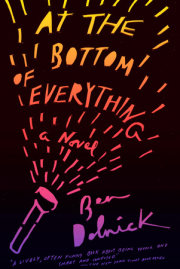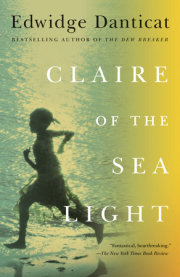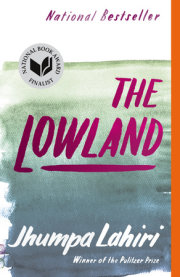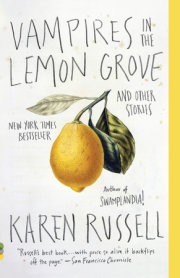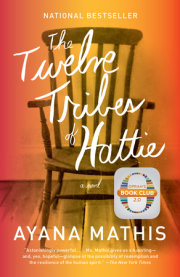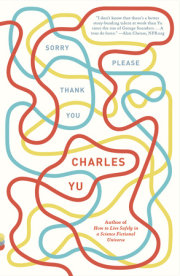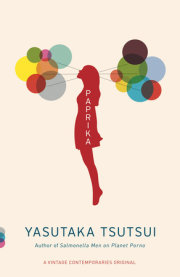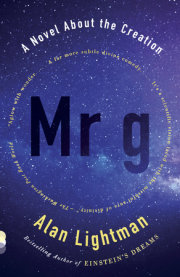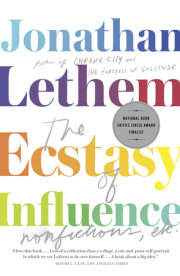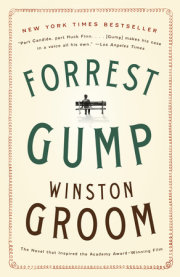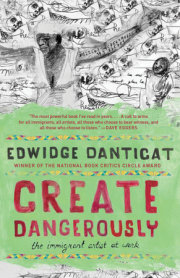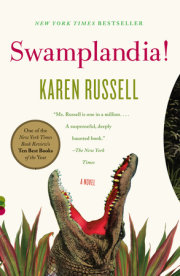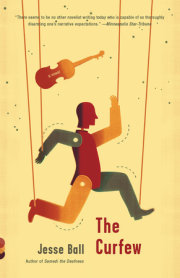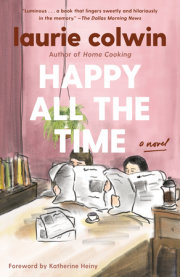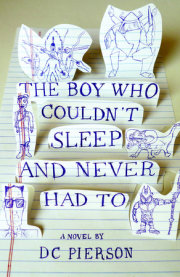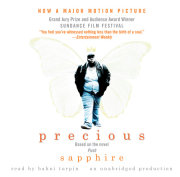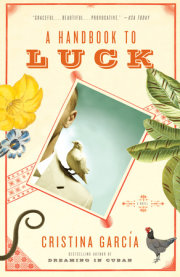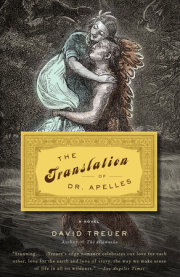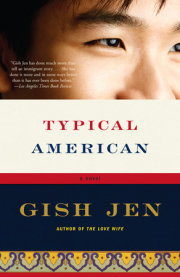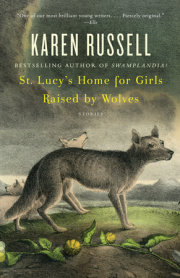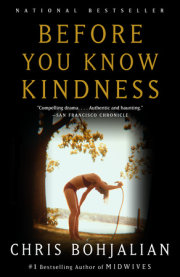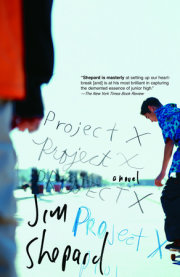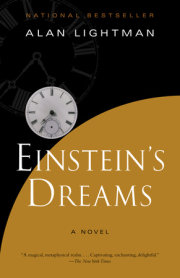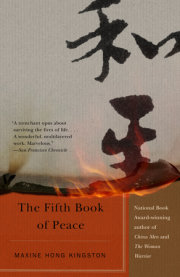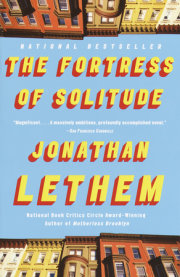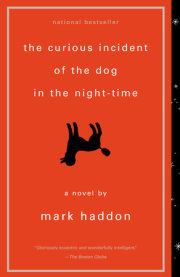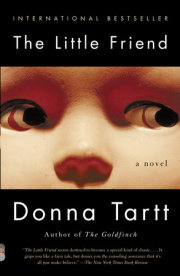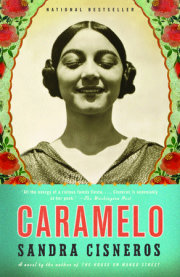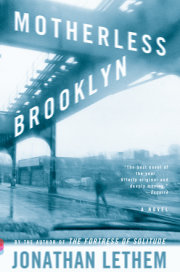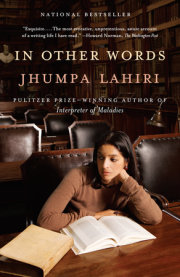From the internationally best-selling, Pulitzer Prize–winning author, a superbly crafted new work of fiction: eight stories—longer and more emotionally complex than any she has yet written—that take us from Cambridge and Seattle to India and Thailand as they enter the lives of sisters and brothers, fathers and mothers, daughters and sons, friends and lovers.
In the stunning title story, Ruma, a young mother in a new city, is visited by her father, who carefully tends the earth of her garden, where he and his grandson form a special bond. But he’s harboring a secret from his daughter, a love affair he’s keeping all to himself. In “A Choice of Accommodations,” a husband’s attempt to turn an old friend’s wedding into a romantic getaway weekend with his wife takes a dark, revealing turn as the party lasts deep into the night. In “Only Goodness,” a sister eager to give her younger brother the perfect childhood she never had is overwhelmed by guilt, anguish, and anger when his alcoholism threatens her family. And in “Hema and Kaushik,” a trio of linked stories—a luminous, intensely compelling elegy of life, death, love, and fate—we follow the lives of a girl and boy who, one winter, share a house in Massachusetts. They travel from innocence to experience on separate, sometimes painful paths, until destiny brings them together again years later in Rome.
Unaccustomed Earth is rich with Jhumpa Lahiri’s signature gifts: exquisite prose, emotional wisdom, and subtle renderings of the most intricate workings of the heart and mind. It is a masterful, dazzling work of a writer at the peak of her powers.
“Unaccustomed Earth debuted at No. 1 on the New York Times best-seller list, an astounding feat for a book of quiet, formal short stories about the lives of Bengali immigrants and their children. . . . Lahiri is a miniaturist, a microcosmologist, and she helps us understand what those lives mean without resorting to we-are-the-world multiculturalism. . . . Lahiri’s rise is part of a changing of the guard in American fiction, from a generation in which white American-born men still play a primary role, to one in which the principal voices weren’t born here . . . They’re transnationals, writers for whom displacement and dual cultural citizenship aren’t a temporary political accident but the status quo. . . . Lahiri’s stories are grave and quiet and slow, in the 19th century manner. They don’t bribe you with humor or plot twists or flashy language; they extract a steep up-front investment of time from the reader before they return their hard, dense nuggets of truth. What looks like stasis is really the stillness of enormous forces pushing in opposite directions, barely keeping one another in check. It’s difficult to quote from her stories: they refuse to sum themselves up with a neat final epiphany, and Lahiri doesn’t write one-liners. . . . She steps back from the action, gets out of the way, so the people and things in her stories can exist the way real things do: richly, ambiguously, without explanation.”—Lev Grossman, Time (May 19, 2008)
“Definitely worth reading for its insight into a growing part of our culture and the recurring themes of the human heart. After all, these are the kind of stories that many of us could tell if we ever had a mother-in-law who disapproved of a spouse or a parent disappointed with a career choice by a child. . . . Put down the clicker and read one of these stories instead of [watching] the latest reality show. You’ll see more about reality in this fiction than on any of those productions.”—Dan Barker, The Fort Morgan Times (May 2, 2008)
“Lahiri has taken her expertise to another level. Praised for her poignant and evocative writing, Lahiri imbues her characters with such undeniably real thoughts and disturbances that the reader questions whether the work is fiction. [These are] very real characters, whose sorrows, desperation, discomfort and joy readers will undoubtedly feel. [Unaccustomed Earth] emphasizes common experiences and universality. . . . Lahiri has a grasp on what it means to stand on new ground, to have to settle in a most uncomfortable foreign place, physical or otherwise. Unaccustomed Earth is a pinnacle of storytelling and character development, and it secures Lahiri as one of the brilliant writers of this generation.”—Ravi Antani, The Daily Texan (April 30, 2008)
“Stunning . . . [stories that are] rare as fine jewels, beautiful as a string of genuine pearls–each one its own perfectly wrought masterpiece, subtly layered, but all carefully knotted together, making a cohesive chain of related themes. . . . Absorbing, profoundly affecting. . . . The beauty of [‘A Choice of Accommodations’] is that it reflects all the vagaries and nuances of real, lived-in marriage–it bumps and weaves but maintains–or finally grasps–a thread of connection. . . . [Hema and Kaushik’s] choices and ultimate fates are an unforgettable conclusion to a book of incomparable humanity, rooted in earth familiar to anyone, regardless of ethnicity. Lahiri chooses to tell her stories through the lens of the lives of Indian-Americans, providing an interesting window into their particular experiences. But she knows of the human soul’s capacity for love–and equal capacity for sometimes dashing it–and writes poignantly of these universal traits. Her stories are real and grounded, substantive enough to savor slowly and appreciatively.”—Cathy Carmode Lim, The Anniston Star (April 27, 2008)
“Elegant, insightful . . . Lahiri’s work transcends her characters and focuses more on the heart and soul of people everywhere, as well as the difficulties navigating in a new world with new rules and values. Unaccustomed Earth is an emotional tale of first- and second-generation families as they learn to move through the American landscape. [The collection] begins with several mini-dramas that pull on the heart strings of any reader. Stories of emotional longing for the familiar, for someone who understands the desire to fit in, make Lahiri’s characters jump off the page and into any reader’s daily life. . . . Powerful . . . will have readers yearning for Lahiri’s next work of brilliance. The end causes a reader with heart to turn to page one again and dive into the book with opened eyes as to what love truly is.”—Ivy Farguheson, The Marshfield News-Herald (April 27, 2008)
“An even better collection of stories [than her previous two books] . . . Whereas some writers get weighed down by being the hot young thing, Lahiri’s early success seems to have left her knowing she has nothing to prove. . . . Both subtle and powerful . . . Universal and inevitable . . . Lahiri strikes chords that are beyond most writers. And like the short story master Alice Munro, she curls around her themes in layers rather than striking them directly, and her work is more memorable for how her characters react to situations rather than for the situations themselves. In the end this makes for pathos rather than sentimentality.”—Ed Siegel, The Boston Phoenix (April 25, 2008)
“Jhumpa Lahiri is, and is not, an old-fashioned writer. She is too natural to be anyone’s imitator. Yet the kind of relationship she invites readers into can feel familiar from some of the books we were drawn into long ago, when we were first learning about the good company reading can provide. . . . Her stories are lucid, discrete, empathetic yet satirical. [She can] drill down to an essence of character and reveal it in quick, telling strokes. . . . Lahiri’s confidence in her material seems to free her up to be rigorous with her craft . . . At her best she is both a pop artist and a nimble classically trained one, tending with technical knowhow to questions of structure and flow: the right moment to shift from harmony to dissonance, to change key, to introduce a variation and then circle back to the opening theme. . . . The father in [the title story] is well drawn, as was the heartbreaking father in Lahiri’s novel The Namesake. They are a specialty of hers, these fathers who place a value on equilibrium and daily discipline . . . There often lurks beneath the smooth, elegant poise of Lahiri’s prose the potential for emotional violence, but most often quietly, and with mysterious deliberation, self-administered. Lahiri has a minor genius for chronicling depression, that form of sabotage whose many distinctive strains (reckless or repressed, distracted or obsessively focused, self-pitying or self-punishing) she seems to know like a medical specialist. . . . By the end we remember small vignettes of solitude, and fragment scenes of fragile families: each with its distinctive collective personality, its technique of hiding things from one another as a means of support, its pattern of contesting or intimately sharing space. Here may be where Lahiri’s passion ultimately lies; here in any case are palpable physicality, anger, a dash of horror, and involuntary love.”—Sarah Kerr, The New York Review of Books (May 15, 2008)
“Beautiful, pathos-filled . . . [Jhumpa Lahiri] and her characters bridge cultures. They’re Americans who’ve inherited a tight-knight Bengali family culture–not just close and protective, but also full of obligations. This allows Lahiri to create a world of our emotions and associations through family dramas . . . I enthusiastically recommend Lahiri’s fiction to book-discussion groups.”—Rob Neufeld, Asheville Citizen Times (April 27, 2008)
“There is a quiet and subtle beauty to Jhumpa Lahiri’s writing. It’s never flowery, never too much. . . . What distinguishes Lahiri is her sensitivity both to story and language. The Bengali details are there, in fresh and vivid light, for those of us who are unfamiliar with the culture, but ultimately, it’s the human universals–love, betrayal, rivalry, lust, dishonesty–and subsequent unfolding dramas that convince you you’re under the spell of an observant and truthful narrator, one who will be bluntly and meticulously honest, to the point of not sparing her protagonists’ fates. . . . Tender . . . [Lahiri’s] books shimmer with persuasive glimpses of human nature, in a way that few books can and do. [I] applaud Lahiri for her truth-telling.”—Elissa Elliott, ChristianityToday.com (April 21, 2008)
“Poignant . . . There is a great, simple force at work in Unaccustomed Earth. It is a force–at once powerful and intimate, familiar yet foreign–that renders each of the eight stories here unforgettable. It is Lahiri’s gift-for-writing growing on the page, rendering Unaccustomed Earth finer even than her [previous two books]. . . . Lahiri, like Hemingway, is spare with words, always saying more with less. . . . [‘Going Ashore’ contains] all the love and suspense of Hemingway’s ‘A Farewell to Arms,’ or Pasternak’s ‘Doctor Zhivago’–raw, beautiful and without sentiment. Yet the reader cries. All of Lahiri’s personal themes are here–the ‘immigration experience’–of course, but also sameness and difference everywhere, marriage and acceptance, big joys and little joys, disenchantment, betrayal, death along with, at times, a gentle humor. In ‘Going Ashore,’ Lahiri also shows her ability to deal with the larger themes of senseless human strife and unending war . . . Lahiri is a master of beautiful endings, and [the title] story’s end is one that resonates long after the tale is read. Indeed, each of the stories here is stunning in its reverberations . . . Lahiri so seemingly effortlessly gives us rooms with small mirrors that show us far more than we at first can imagine.”—Karen Brady, The Buffalo News (April 20, 2008)
“Mournful, deeply satisfying . . . a profound meditation on the emotional undertow of [Bengali-American] migrations. Ranging in setting from Seattle to suburban Boston, Rome to the clattering streets of Calcutta, Lahiri’s cast of mostly Bengali characters struggle to grow accustomed to their new homes, the new families created by loss sustained in faraway places. . . . Few writers of any nationality write a love story as heartbreaking as Lahiri . . . does here, several times, especially in the three linked stories that conclude the book. What makes them so devastating is how often the end of an affair isn’t just the collapse of love but the loss of what that love represents. . . . Lahiri paints domestic life with her usual precision, her tales’ great power emerges from the way she compresses entire family histories into these stories. Like the work of Alice Munro and William Trevor, they read like miniature novels. Finishing them, you almost wish the characters could know that here–in these pages–it all makes a beautiful, if terrible, kind of sense.”—John Freeman, Metro Silicon Valley (April 16, 2008)
“[Lahiri’s] characterizations are deep, diverse, and insightful. . . . Lahiri’s stories are elegantly crafted throughout . . . She calibrates the emotional temperature slowly, never better than in the closing story, ‘Going Ashore,’ a romantic tale that moves so unassumingly that its heartbreak doesn’t register until you’re drowning in it.”—Mark Athitakis, Washington City Paper (April 16, 2008)
“Jhumpa Lahiri is a writer who will be read for years, one who will have to put up with paragraphs full of flattery. With Unaccustomed Earth, Lahiri’s name will be synonymous with great short fiction–if it isn’t already. . . . Lahiri’s stories here are long, like Alice Munro’s, and like Munro’s they can bring a world to life in 40 or 50 pages. While these are short stories, the reader feels the captivation and understanding of characters usually displayed and developed over several hundred pages in a novel. . . . Lahiri’s stories span all manner of time and space. [They] are immensely readable as much for Lahiri’s clean, direct prose as for the scenarios in which she places her characters. She heightens the sense of reality in the stories with descriptive turns of phrase but manages to go light on the metaphors and similes. . . . The book takes off in part two, ‘Hema and Kaushik,’ three stories spanning more than 30 years . . . If you read them in succession, they reveal a power . . . due in large part to a climax that leaves the reader feeling something akin to being slugged in the gut by a heavy fist.”—Jason Kuiper, Omaha Sunday World-Herald (April 13, 2008)
“[Unaccustomed Earth] bears few of the familiar marks of immigrant literature. [These stories exist] in a vernacular America’s coastal upper-middle class would recognize as its own. The characters in Lahiri’s stories, flowing through the book in a seamless shift of perspective so that the supporting character of one piece is reflected in the protagonist of the next, are only rarely preoccupied with their [Bengali] heritage. More often, their problems are the mundane compromises and heartaches that occupy American middle-class life . . . It’s family life ‘as typical and terrifying as any other,’ which seems to be the point. [Unaccustomed Earth] should perhaps be considered the literature of assimilation rather than immigration. . . . The end of the book points a step further: past the white-bread sameness of daily worries to a grappling with cultural tradition that can change that tradition from within.”—Kathryn Joyce, Newsweek.com (April 10, 2008)
“Four and a half stars. [Unaccustomed Earth] finds [Lahiri] at the rising peak of her literary powers. . . . The final three stories in this remarkable collection may be the best trio of short stories I have ever read. In just 110 pages, Hema and Kaushik become inextricably linked as friends and sometimes lovers. They deserve a place in the annals of literary pairings along with Petrarch and Laura, Romeo and Juliet. [The trilogy ends with] the perfect conclusion! Unaccustomed Earth creates a beautifully literate journey that clearly illustrates the power of Jhumpa Lahiri’s writing, her sense of community, her ability to create an imagined world as real, as joyous, as painful as Life. Every word fits. Nothing is wasted. Each story creates a unique, self-contained world. Yet, there is always the metaphor of disconnection, disengagement with life in America. And, despite the clear Bengali frame of reference on which each story is hung, these are universal themes: the loss of a parent or spouse, the sense of not fitting in, being ill at ease in a strange society. . . . Jhumpa Lahiri is a writer to be reckoned with.”—John M. Formy-Duval, About.com (April 2008)
“Luminous . . . Lahiri expertly captures the heartbreak and hope in everyday moments. You’ll want to read Unaccustomed Earth at least twice before you pass it along to a friend who, guaranteed, won’t return it.”—Redbook (May 2008)
“Exquisitely written . . . Every short story in Unaccustomed Earth is a marvel. [Lahiri] once again shows why her stories will win over even people who don’t like the genre. In just a few pages, she draws Indian-American characters who seem real, writing with devastating accuracy about the long silences and miscues between people–between immigrant parents and their rebel children, between husband and wife, between sister and brother. Consider the story called ‘Year’s End,’ [which] builds to a devastating crescendo that literally took my breath away. It is part of a trio of linked stories called ‘Hema and Kaushik,’ [which] comes together like a moving novella . . . Because Lahiri’s writing is filled with both great restraint and compassion, it feels as if you are staring into the souls of the characters.”—Cristina Rouvalis, Pittsburgh Post-Gazette (April 20, 2008)
“More substantial, more sustained [than Interpreter of Maladies,] Unaccustomed Earth contains unsentimental meditations on love and disappointment along one pathway of the Indian diaspora. . . . Lahiri’s fans will not be disappointed by any of these stories, but the three linked pieces that close the collection eclipse what comes before. . . . [The trilogy] is as close to fairy tale as Lahiri will come, and there is no happy ending. She is more comfortable as a realist, her stories suffused with a gentle pessimism, a background ache that tempers the successes of her characters, caught between fatalism and free will, family and the future.”—Janice P. Nimura, Newsday (April 20, 2008)
“Exquisite, transcendent . . . Lahiri is a writer of luminous prose and indelible stories . . . Astonishing.”—Karen Heller, The Philadelphia Inquirer (April 13, 2008)
“More wise, more evocative, the dilemmas more poignant [than in her previous books.] Lahiri writes of a generation of [Bengali-American] immigrant parents intent on keeping the old ways . . . While [the women] are most often dressed in saris frying luchis in the kitchen aching for the familiar, their loneliness is also that of any American housewife isolated in the suburbs. . . . Mesmerizing.”—Sherryl Connelly, New York Daily News (April 13, 2008)
“Lahiri scores again with Unaccustomed Earth. Every once in a while, we are blessed by a writer who is so extraordinary in her storytelling, who creates sentences that resonate long after they are read, whose tales inhabit our thoughts, conversations and dreams for weeks after we’ve read their words. Lahiri is one such writer. Her new book, Unaccustomed Earth, may be her best yet. [Lahiri’s] grasp of the nuances in relationships of all kinds along with her gripping prose make her narratives a common experience for all of us. Lahiri structures her writing with seemingly effortless brilliance and great attention to detail. Each story draws us in with concern and anxiety. . . . Lahiri concludes her stories with equal skill–and alarm. . . . The final [‘Hema and Kaushik’] stories are perhaps the finest of the book, [yet] each of Lahiri’s stories is a powerful tale that pulls us in, mesmerizes us while we’re there, and releases us with the knowledge that we’ve just experienced a small masterpiece. This is truly dazzling fiction at its best.”—Jim Carmin, The Oregonian (April 13, 2008)
“Stunning . . . To say that Jhumpa Lahiri writes about Bengali immigrants in America is like saying that Flannery O’Connor writes about the south–true, but terribly short-sighted. . . . It is Lahiri’s brilliant eye for character at the heart of each of these eight stories [in Unaccustomed Earth] that causes this collection to transcend the themes of nationality and ethnicity to reveal buried desires that are often in opposition to tradition. The order of the stories builds the intensity of the collection as a whole, hitting its height in the final part–a set of three linked stories about the intertwining fates of Hema and Kaushik, two children of Bengali immigrants who meet as kids and then again as adults. [Lahiri uses] language that is neither ornate nor spare, but direct and emotionally rich. . . . Lahiri’s characters are so compelling that she has no need for stylistic gimmicks or intricate structures. Instead, she pens straightforward but complex narratives with subtle twists of fortune that emerge as powerfully for the reader as they do for the characters. . . . Lahiri’s talents [are] for creating a rich, character-driven world–whether immigrant or native, American or Bengali, young or old–that is as simple and heartrendingly complicated as our own.—Francis Merlie, phillyBurbs.com (April 14, 2008)
“[Unaccustomed Earth] has a powerful emotional resonance that transcends what has been classified as immigrant fiction and instead assumes a universality as characters struggle with authenticity, assimilation and independence. Lahiri is a genius of the miniature stroke and the great arc.”—Elizabeth Taylor, Chicago Tribune (April 12, 2008)
“Underneath that stunning exterior, the detail with which she gets you in the web of Bengali-American life . . . suddenly [Lahiri] gives this throbbing, kind of beating heart. I just gasped, suddenly, in the middle of the story–I have to close the book because I’m breathing. And then I finish [the story], and then I almost always reread it because I want to savor it–the first time it becomes this unexpected roller coaster, emotionally.”—Mira Nair, director of The Namesake as heard on “All Things Considered” (April 8, 2008)
“Unaccustomed Earth is as absorbing as its predecessors [Interpreter of Maladies and The Namesake], and Lahiri’s prose continues to be thoughtful, measured, and unexpected. . . . Her talent is for capturing the intricate bonds of loyalty and resentment present within families of every cultural background. The premises of these stories are simple . . . but the absorbing way she examines even the most petty or mundane reaction of her characters speaks to the readers’ experiences. . . . Poetic, engrossing . . . It’s the kind of book that makes you sit up a little straighter and swoon, simultaneously.”—Cienna Madrid, The Stranger (April 8, 2008)
“Beautifully crafted stories [from] one of this country’s most accomplished and graceful young writers. . . . The remarkable poignancy Lahiri achieves in her work–and in this book in particular–is the result of tying [her] examination of exile to other, more universal moments of essential sadness in our lives: the death of a parent, the end of a love affair, the ravages of alcoholism on a family. . . . Perhaps the greatest triumph of Unaccustomed Earth is the empathy and grace with which Lahiri depicts her characters’ lives. There are no sentimental flourishes of the exotic that romanticize the mystical allure of the East. There are no spiritual epiphanies that join the old world and the new, that erase the characters’ sense of dislocation and loss. There is, however, an absolutely convincing and ultimately redemptive humanity in Lahiri’s characters.”—John Gregory Brown, Boston Sunday Globe (April 6, 2008)
“Unaccustomed Earth is her best yet . . . sprint to your nearest bookstore. To call Lahiri’s work ‘short stories’ is to call Wordsworth’s ‘Tintern Abbey’ a ‘poem.’ True but inadequate. Like Wordsworth, Lahiri has an ear exquisitely attuned to cadenced language and a haunting awareness of the way a human lifespan is built upon layers of time, loss, and the redemptive epiphanies of memory and art. When it comes to literary soulmates, she has even more in common with Anton Chekhov and Alice Munro–pitch-perfect short-story wizards who can conjure a novel’s worth of plot and character, psychological and moral complexities, within a few pages. . . . ‘Hema and Kaushik,’ the stunning trio of interconnected stories that completes the collection, [is] beautifully written [and] a grand love story, which unfolds with the swoony, earthshaking intensity of a Titanic or an English Patient. . . . Lahiri crafts a blend of sorrow, wit–and always, rueful wisdom–about the fallible human condition.”—Diana Postlethwaite, Minneapolis Star-Tribune (April 4, 2008)
“With Unaccustomed Earth, Lahiri continues adding to a body of work that is establishing her as not simply one of the best writers of her generation but one of the best living writers on the planet, period. . . . There is no emotion, be it love, regret, jealousy grief, confusion, or a sense of being out of place, that Lahiri doesn’t deftly and vividly sketch. . . . On their own, each of the stories [in the ‘Hema and Kaushik’ trilogy] possesses a quiet and elegiac power that is shadowed by loss. But read as a whole they are a stunning meditation on chance and fate. The full range of Lahiri’s remarkable talents are on display here: her beautiful prose, close observations, rich imagination and deep empathy for her fully developed characters. With Unaccustomed Earth, readers who appreciated Jhumpa Lahiri’s first two books will fall in love again with her writing.”—Cary Clack, San Antonio Express-News (April 4, 2008)
“With jewellike details, Lahiri describes [Bengali-American] children and adults who never quite fit in with their neighbors or their schoolmates. [She] adds a new dimension [to immigrant literature] with her ability to create lifelike characters who are continually finding new aspects of themselves. [Unaccustomed Earth’s] short stories rely on Lahiri’s use of small details to compress experience and enhance the plot. Along with her understated, conversational prose, they bring alive the settings and the emotional aspects of the narratives, both enhanced by her sense of irony. As Lahiri’s prose moves seamlessly between first- and third-person points of view, with one perspective complementing the next, she puts her characters under a microscope, nothing the fine threads of the ties that bind, but sometimes unravel.”—Diane Scharper, The Denver Post (April 4, 2008)
“The tales in Unaccustomed Earth seep into the psyche quietly, unassumingly stealthy in their power to affect deeply. . . . The writing here is masterful.”—Melanie Haupt, Austin Chronicle (April 4, 2008)
“Limpid yet complex . . . impressive. [Lahiri is] a pre-eminent chronicler of the hybrid consciousness [of America] . . . The legacy of growing up in the grip of a globally mobile heritage is once again Lahiri’s theme in Unaccustomed Earth. . . . She has captured more clearly than ever before a restless feeling of uprootedness that is as representative of America now, in the post-9/11 era, as the credo of wide-eyed openness ever was. . . . What Lahiri never fails to miss is how the very wariness that isolates her Indians from their American neighbors, and divides custom-bound parents from their anxiously assimilating children, also inspires a common quest for a sense of kinship. In a time when borders–between genders and generations, not just nations–are more permeable than ever, no one can count on feeling fully at home in the world. . . . Lahiri is a narrator subtly in tune with her poised yet highly sensitive characters. She sets store, as they do, by emotional reserve and a studious display of control–all the while alert, as they mostly are, to powerful tensions coiled beneath the surface. Lahiri maps the divergent angles of vision and emotion that obstruct, even as they broaden, her characters’ search for a sense of belonging. . . . [‘Hema and Kaushik,’] her inspired concluding section . . . is a tour de force, embodying in its structure and voices Lahiri’s core themes.”—Ann Hulbert, Slate (April 3, 2008)
“Engrossing . . . [Lahiri] seems more grounded than ever, digging deeper into her signature subject matter of the complex relationships between Bengali immigrants and their American children. Lahiri’s stories are quietly powerful [and] composed with rare elegance and grace. . . . One quality that stands out here is Lahiri’s absolute psychological accuracy: She writes with complete empathy from all types of characters’ perspectives . . . Her characters are always compelling, even lovable, because they’re so simply human. Lahiri is skilled at expressing thoughts many people have, particularly about children and parental relationships, in an eloquent way. . . . Each story [in the ‘Hema and Kaushik’ trilogy] is complete and striking in itself, but reading the three together yields a highly dramatic, uncommon and ultimately tragic love story. The consistently excellent quality of Lahiri’s work proves that [she] doesn’t need to reinvent herself with each book; she needs only to burrow deeper into the fertile ground from which her fiction has already blossomed. Grade: A.”—Jenny Shank, Rocky Mountain News (April 3, 2008)
“Read it. Read it right away. . . . For those of us worrying as the greats age–Atwood, Oates, Roth–wondering who might fill the gap, Lahiri is cause for hope. . . . Hers are perfectly placed words lining themselves into elegant sentences whose subject matter: family, mothers and daughters, assimilation, alcoholism, children, marital love–touch us all. Lahiri’s Bengali heritage informs her work, communicating worlds through the smallest of details.”—Diane Leach, January Magazine (April 2008)
“Very few authors write so well or so engagingly that you don’t want to come to the end. Jhumpa Lahiri is one of them. She probes, she lyrically analyzes, she circles and pounces. She sets up an encounter between her characters and watches it unfold, catching every elusive emotion, physical movement, attitude and posturing. Her paragraphs are long and full-bodied, Jamesian but without his filigreed, finicky dissecting of pale thought. . . . To speak of her subjects is not to speak of extremes but of family ties, broken and unbroken, the subterranean guilts and lusts and mysterious motivations of real people. . . . It’s as if Lahiri peels the skin off her subjects, but with grace, not with calculated indifference. She probes their souls as manifested in their habits and routines, their clothes, their books, their doubts. . . . Luminous, sad, often intoxicating.”—Sam Coale, The Providence Journal (March 30, 2008)
“This superb collection begins with its title story, and if there’s a more perfect portrayal of the unspoken tenderness and tension that can exist between a family’s generations, I have not read it. [Lahiri] portrays [her characters] with such elegance and precision that you feel as if you aren’t just reading her fiction but walking into it and letting the story close around you. It’s trendy to flatter short fiction by saying ‘it reads like a novel,’ but it’s especially true of the three connected stories that end this book.”—The Arizona Republic (March 30, 2008)
“It’s early to be proclaiming a best book of the year, but Jhumpa Lahiri’s gorgeous Unaccustomed Earth will be hard to top. . . . Although Lahiri continues to plow the fertile ground she first sowed in her Pulitzer Prize-winning story collection, Interpreter of Maladies–Bengali immigrants and the culture gap that grows between them and their American-raised offspring–her insights run so deep that there’s little risk of exhausting this theme. . . . What’s uncommon [in these stories] is Lahiri’s sensitivity as she tracks her characters’ loves and losses with exquisite assurance. . . . All unfold with a quiet accrual of details and nuanced observations that makes you regret having to leave its absorbing world when you finish. The ‘Hema and Kaushik’ [trilogy] offers some of Lahiri’s best writing . . . [its] stunning conclusion evokes Shirley Hazzard’s Transit of Venus. . . . Unaccustomed Earth is cause for celebration: It showcases a considerable talent in full bloom.”—Heller McAlpin, San Francisco Chronicle (April 6, 2008)
“Lucid and revelatory . . . both universal and deeply felt. [The Bengali-American] children [in Unaccustomed Earth], while conscious of and self-conscious about their parents’ old-world habits, vigorously reject them in favor of American lifestyles and partners. [Lahiri] is adept at showing us these cultural and generational conflicts. The stories she generates from these clashes appear true to life [and] are never predictable. Lahiri is far too accomplished and empathic a writer to relax her gaze; she excels at uncovering character and choosing detail.”—Lily Tuck, The Washington Post Book World (April 6, 2008)
“Graceful and devastating [Unaccustomed Earth] inspires admiration [for Lahiri] all over again. Eight spacious tales of families with Bengali roots relocated in North America extend wide and deep, delivered with supple technique, patient sensitivity and the lethal power of a left hook. Lahiri has an extraordinary ability to take the long view. Her stories can reach easily across decades . . . [‘Only Goodness’ is] a powerful work, containing moments of heart-quickening suspense. . . . The two stories that open the collection and set the bar [are] the title tale, [which contains] a charged moment of parental truth that lingers like a held chord, [and] ‘Hell-Heaven,’ [whose] transfixing final sentence is slipped in as casually as a stiletto to the ribs. Lahiri offers her richly humane insights with unfailing generosity. Villains are few; compassion and pained wisdom are owned or gained by many. An instinctive emotional empathy is enlarged by the author’s characteristic inclusion of the cultural dilemmas of her own background. . . . If, as commentators currently discuss, we are entering a progressive racial era, Lahiri’s fiction, with its constant crisscrossing between difference and integration, may be truly of the moment. . . .[A] gorgeous, meticulous and inviting work. [These stories] are the work of an artist wise in enigmas and human mystery.”—Elsbeth Lindner, The Miami Herald (April 6, 2008)
“Jhumpa Lahiri’s characters tend to be immigrants from India and their American-reared children, exiles who straddle two countries, two cultures, and belong to neither: too used to freedom to accept the rituals and conventions of home, and yet too steeped in tradition to embrace American mores fully. . . . Ms. Lahiri writes about these people in Unaccustomed Earth with an intimate knowledge of their conflicted hearts, using her lapidary eye for detail to conjure their daily lives with extraordinary precision . . . A Chekhovian sense of loss blows through these new stories: a reminder of Ms. Lahiri’s appreciation of the wages of time and mortality and her understanding too of the missed connections that plague her husbands and wives, parents and children, lovers and friends. [Lahiri] deftly explicates the emotional arithmetic of her characters’ families . . . showing how some of the children learn to sidestep, even defy, their parents’ wishes. But she also shows how haunted they remain by the burden of their families’ dreams and their awareness of their role in the generational process of Americanization. . . The last three overlapping tales tell a single story about a Bengali-American girl and a Bengali-American boy, whose crisscrossing lives make up a poignant ballad of love and loss and death. They embark on a passionate affair that concludes not with a fairy-tale happy ending but with a denouement that speaks of missed opportunities and avoidable grief. . . . an ending that possesses the elegiac and haunting power of tragedy–a testament to Lahiri’s emotional wisdom and consummate artistry as a writer.”—Michiko Kakutani, The New York Times (April 4, 2008)
“Stunning. [Lahiri] delves deeply and richly into the lives of immigrants. [But though] immigrants may be the stories’ protagonists, their doubts, insecurities, losses and heartbreaks belong to all of us. Never before has Lahiri mined so perfectly the secrets of the human heart. . . . In part, Lahiri’s gift to the reader is gorgeous prose that bestows greatness on life’s mundane events and activities. But it is her exploration of lost love and lost loved ones that gives her stories an emotional exactitude few writers could ever hope to match.”—Carol Memmott, USA Today (April 3, 2008)
“Shimmering . . . The literary prize committees should once again take note . . . To read [Unaccustomed Earth] and only take away an experience of cultural tourism would be akin to reading Dante only to retain how medieval Italians slurped their spaghetti. Lahiri’s fiction delves deep into the universal theme of isolation. . . . Lahiri is a lush writer bringing to life worlds through a pile-up of detail. But somehow all that richness electrifyingly evokes the void. . . . It’s customary when reviewing short story collections to adopt a ‘one from column A, two from column B’ kind of structure–you know, the title story always gets a ritual nod, followed by a run-down of which stories are the strongest, which have just been included for filler. But another stereotype-confounding aspect of Lahiri’s writing is that there aren’t any weak stories here: every one seems like the best, the most vivid, until you read the next one. . . . Lahiri ingeniously reworks the situation of characters subsisting at point zero, of being stripped down like Lear on the heath. [Unaccustomed Earth] certainly makes a contribution to the literature of immigration, but it also takes its rightful place with modernist tales from whatever culture in which characters find themselves doomed to try and fail to only connect.”—Maureen Corrigan, “Fresh Air” (March 31, 2008)
“Profound . . . Powerful . . . Haunting . . . Lahiri’s prose here is deceptively simple, its mechanics invisible, as she enters into her characters’ innermost journeys. [In the title story,] the moment-to-moment rendering of Ruma’s vulnerability and her father’s rising panic at all that he’s keeping secret sweeps the reader into a compelling emotional landscape. . . . Lahiri invests [her characters] with great depth. [She is] a writer working at the height of her powers.”—Lisa Fugard, Los Angeles Times Book Review (March 30, 2008)
“Five of five stars. . . . Commanding and seamless . . . There might not be a better book of fiction by an American writer published this year. . . . Extraordinary . . . The long, absorbing ‘Unaccustomed Earth,’ the title story [deals with] familiar themes [for Lahiri]: the alienation that Indian immigrant parents feel toward their American-reared children and the guilt those children feel as they assimilate into the melting pot of the U.S. But as she proved in Interpreter of Maladies and The Namesake, Lahiri writes so compellingly about these conflicts and pays such careful attention to the most emotionally telling of details that each story feels freshly minted. . . . The range of human experiences [Lahiri] chronicles is epic, again and again. [‘Hell-Heaven’ is] a universal story of yearning and unrequited desire, rooted so specifically and powerfully in a sense of time and place that we feel as if we are living right alongside the characters . . . For all that’s comfortingly familiar about Unaccustomed Earth, though, one of its chief pleasures is that it shows Lahiri stretching in entirely new directions. In ‘A Choice of Accommodations,’ for instance, the author serves up a slice of Updike-ian Americana while managing to put her own distinct twist on the proceedings. . . . ‘Only Goodness,’ arguably the strongest story in the collection, gets under your skin like nothing Lahiri has written before. The first five stories are varied and accomplished [and the final three] are gripping and affecting . . . Whereas so many story collections feel like uneven grab-bags, Unaccustomed Earth seems to have poured forth from the author’s pen in one swoop, and it eloquently circles back over the same sets of themes and motifs without growing tired. It’s like a symphony in eight movements.”—Christopher Kelly, Fort Worth Star-Telegram (March 30, 2008)
“Four stars. Jhumpa Lahiri continues to probe culture and generational clashes among Bengali brethren living in the U.S. (and occasionally abroad) in her penetrating second collection . . . No character exists in isolation in Lahiri’s new work, which is deeply aware of the power of blood ties; her book is a congregation of siblings, parents, spouses. Neither an exultation of nuclear families nor a cynical catalog of their dysfunction, Unaccustomed Earth is something braver and more difficult: a compassionate inspection of the fissures and disappointments of deep attachment. . . . trenchant. Whether they are middle-aged mothers who tire of years of keeping house in small Northeastern towns, thousands of miles away from Calcutta, or sisters who finally relinquish responsibility for alcoholic younger brothers, these characters are somehow redeemed by their courage to face the day, ‘as typical and terrifying as any other.’”—Melissa Anderson, Time Out New York (March 27-April 2, 2008)
“[Lahiri’s] stories are quiet, deliberate, setting one foot down in front of the other, then exploding with a secret, an encounter, a clash. Quietly, then, they lay back down, leaving the reader astir in their unnerving calm. Lahiri’s [work], however, is rife with characters that are larger than the Bengali immigration experience, experiences larger than mere discontent. She’s an artist of the family portrait. The eight stories in Unaccustomed Earth have an emotional wisdom weightier than in Lahiri’s first collection, Interpreter of Maladies, which won the Pulitzer Prize, and they contain a more nuanced tightness than her neo-Chekhovian first novel, The Namesake . . . Her new stories are better, stronger—evidence of a writer pushing herself to a deeper level. . . . Old-fashioned in her approach, contemporary in her subject matter, Lahiri anchors these stories in character. . . . In [‘Unaccustomed Earth’ and ‘Only Goodness’], new life brings hope to broken families, and mothers awash in tears must carry on when the baby cries. [Lahiri] captures these moments with clarity and grace, a tangible knowledge of how souls twist in the wind. . . . The ‘Hema and Kaushik’ stories, a trilogy that closes the book, prove the most haunting. The characters, Lahiri has said in interviews, lived with her for a decade, and their presence feels imprinted in these pages as if by letterpress. . . . In these three stories, Lahiri experiments with point of view. Forsaking her usual third-person narrator, she goes for the intimate whispers of first person. If one felt like a fortunate fly on the wall in previous stories, now the effect is to sit in between the beats of her characters’ heartaches.”—Leonora Todaro, The Village Voice (April 1, 2008)
“Lahiri writes largely about the American-born children of middle-class Indian immigrants, but in doing so, she also nails the mores of affluent, educated Americans, both Indian and non-Indian. [‘Only Goodness’] presents a very believable picture of a relationship’s slow decline in a very recognizable urban setting. And that’s precisely what Lahiri does well. . . . Lahiri is a literary heir of Anthony Trollope in her ability to capture the way we live now. And that’s a testament to the way society has changed . . . but also to Lahiri’s skill at evoking this world empathetically and unironically.”—Adelle Waldman, The New Republic (April 2, 2008)
“Eight stories [that] are longer than those in [Lahiri’s] previous collection but just as absorbing and beautifully written. . . . Wonderful prose and masterful delineation of character. [Unaccustomed Earth] fulfills every expectation of her mastery of the prose medium. . . . Unaccustomed Earth is [Lahiri’s] customary style at its very best.”—Nancy Schapiro, St. Louis Post-Dispatch (March 30, 2008)
“Beautifully crafted . . . Lahiri navigates the interlocking themes of identity and assimilation, familial duty and grief . . . employ[ing] quiet language to reveal debilitating truths. . . . Unaccustomed Earth showcases some of Lahiri’s best work and reinforces her claim to our literary high ground.”—Tamara Titus, The Charlotte Observer (March 29, 2008)
“‘Eagerly awaited’ is a phrase too often used to hype a new work. But in the case of Lahiri, it’s accurate. Lahiri again delicately writes of the Bengali immigrant experience, perfectly communicating the tension between the ideals of transplanted parents and the ones of their American children, in the short story format that made her so popular in the first place.”—Billy Heller, The New York Post (March 30, 2008)
“Poignant . . . precisely rendered, elegiac . . . Lahiri details with quiet precision the divide between American-born children and their Bengali parents.”—Yvonne Zipp, The Christian Science Monitor (April 1, 2008)
“Splendid . . . The fact that America is still a place where the rest of the world comes to reinvent itself–accepting with excitement and anxiety the necessity of leaving behind the constrictions and comforts of distant customs–is the underlying theme of Jhumpa Lahiri’s sensitive new collection of stories, Unaccustomed Earth. . . . .Lahiri’s epigraph . . . from ‘The Custom-House,’ by Nathaniel Hawthorne, [is] an apt, rich metaphor for the transformations Lahiri oversees in these pages, in which two generations of Bengali immigrants to America–the newcomers and their hyphenated children–struggle to build normal, secure lives. . . . . Except for their names, ‘Hema and Kaushik’ [the title characters of the final trilogy of stories] could evoke any American’s ’70s childhood, any American’s bittersweet acceptance of the compromises of adulthood. The generational conflicts Lahiri depicts cut across national lines; the waves of admiration, competition and criticism that flow between their two families could occur between Smiths and Taylors in any suburban town; and the fight for connection and control between Hema and Kaushik–as children and as adults–replays the tussle that has gone on ever since men and women lived in caves.
Lahiri handles her characters without leaving any fingerprints. She allows them to grow as if unguided, as if she were accompanying them rather than training them through the espalier of her narration. Reading her stories is like watching time-lapse nature videos of different plants, each with its own inherent growth cycle, breaking through the soil, spreading into bloom or collapsing back to earth.”—Liesl Schillinger, The New York Times Book Review (cover review) (April 6, 2008)
“Jhumpa Lahiri’s stories reveal their intentions with a stately slowness that is starting to seem distinctly 20th century. . . . In the title story of her new collection, Unaccustomed Earth, Lahiri gives us nearly 60 pages of precisely narrated time and delicate emotional tension before the story finally gathers its energies for one sharp, perfectly aimed stab of achy sadness and hope. This is the short story as Hemingway practiced it–or Chekhov, for that matter–in all its demanding, reactionary glory.” —Lev Grossman, Time (April 7, 2008)
“Four stars. Beautifully rendered . . . Unaccustomed Earth explores the dilemmas faced by Bengali immigrants in the west, yet its appeal is universal. Lahiri takes the reader from Massachusetts to Italy to London to Thailand as her characters discover love, freedom and the heartbreak of leaving one family to create another. In the standout title story, a lawyer on maternity leave struggles with her mother’s death and her own ambivalence toward motherhood. ‘Only Goodness,’ about the complexity of loving an addict, contains a darkness that proves the author capable of leaving her usual realm, quiet domestic tragedy, for rougher waters. Reading her stories is hypnotizing–like falling into a dream where colors are brighter, smells sharper and time moves more slowly than in real life.” —Danielle Trussoni, People (April 7, 2008)
“Lovely . . . elegant, unsettling . . . Unaccustomed Earth is full of lost old-world parents and the modern marriages that can’t quite replace them. . . . The saga of Hema and Kaushik is . . . a masterfully written and powerful drama. Though Lahiri’s characters construct sophisticated new identities for themselves, they are still irresistibly drawn to the reassuring traditions they’ve abandoned. The past exerts a wicked pull, even (maybe especially) when you’re all grown up and least expecting it.” —Jennifer Reese, Entertainment Weekly (April 7, 2008)
“[Jhumpa Lahiri is] a succinct realist writer in an era of attention-getting maneuvers. Stylistically, [there’s] no genre bending, no comics-inflected supernaturalism, no world-historical ventriloquism, no 9/11 flip books. Just couples and families joining, coming apart, dealing with immigration, death, and estrangement. This is true of her debut short-story collection, Interpreter of Maladies (which won a Pulitzer in 2000); her novel, The Namesake (a best seller turned Mira Nair film); and her new book, Unaccustomed Earth–eight mature stories each stretching almost to novella length. . . . What makes Lahiri’s corner of the world seem so important, to her and to us? Maybe, for all the polish, it’s the lack of ironic layering that tends to distance us from the tragedies chronicled in most ‘literary’ fiction. Lahiri isn’t afraid to make people cry. . . . Lahiri writes often of illnesses, failing marriages, and just plain loneliness, but thanks to her economy and mastery of detail, it never quite crosses over into the sentimental. Nor does it rely on the melodramatic twists that are staples of more middlebrow writers. ”—Boris Kachka, New York Magazine (April 7, 2008)
“Peripatetic, sweeping stories–Lahiri’s best yet–which move from Boston to Bombay and back again to evoke intricate topologies of emotion and characters who often feel more at home abroad. [They] possess the gravitational pull of short novels. . . . The final three stories, a trilogy in which an educated, thoroughly American girl’s choice of an arranged marriage over romantic love (a decision Lahiri deftly makes relatable) has cataclysmic repercussions, form the rhapsodic culmination to the collection. Lahiri, a master storyteller–who, along with Alice Munro, has arguably done more to reinvigorate the once-moribund form than any other contemporary English-language writer–comes full circle with this book, imbued as it is with a sense of passage, of life and death and rebirth.”—Megan O’Grady, Vogue (April 2008)
“Jhumpa Lahiri already has carved out a distinctive literary niche . . . her tales of Indians encountering contemporary American lives have resonated with a wide swath of readers. Unaccustomed Earth will only burnish that estimable reputation. It’s an emotionally astute, character-driven assortment of stories that carry forward and deepen the themes she’s explored in her previous works. . . . Her prose style is graceful, elegant, understated. Like Alice Munro, Lahiri is adept at handling chronology, ranging backward and forward in time, compressing lifetimes into a single artfully crafted paragraph. Relish this gorgeous collection.”—Harvey Freedenberg, Bookpage (April 2008)
“Emotionally intricate and exquisitely crafted, Unaccustomed Earth’s descriptions of love and conflict are rendered through the lives of people whose traditions include arranged marriages and cultural cohesion. Much of the older generation seeks to honor tradition, and the younger seeks to explore personal choices. . . . One of Lahiri’s great strengths is to concentrate myriad conflicts into individual scenes where cultural, romantic and family betrayal coalesce. Like Jane Austen, Lahiri is brilliant at describing ambivalent emotions. . . . Stories of star-crossed lovers are not new, but when handled by Lahiri in the book’s second section, ‘Hema and Kaushik’ becomes a nearly perfect example of the linked story form. The stories are so richly detailed in their accounting of time, and so socially layered, that the meeting feels convincingly like destiny . . . Masterful.”—John Holman, Paste (April 2008)
“Ferociously good . . . acutely observed . . . In exquisitely attuned prose, Lahiri notes the clash between generations . . . She is emotionally precise about her characters and the way the world appears to them, especially in the superb ‘Hema and Kaushik’ [trilogy], which achingly reveals how two very unlikely families end up under one suburban roof, and how destiny entwines them forever. These are unforgettable people, their stories unforgettably well told.”—Elaina Richardson, O, The Oprah Magazine (April 2008)
“A great book . . . to move you. Whether American or Bengali by birth, Lahiri’s protagonists valiantly walk a tightrope between personal choice and family expectation. Faltering or triumphant, each tugs at the heart.”—Good Housekeeping (April 2008)
“[Lahiri] explores with her modulated prose a full range of relationships among her subjects. So thoroughly and judiciously does she use detail that she easily presents entire lives with each story. These are tales of careful observation and adjustment . . . Most moving is the final trio of intertwined stories about loss and connection.”—The Atlantic (April 2008)
“Lahiri’s enormous gifts as a storyteller are on full display in this collection: the gorgeous, effortless prose; the characters haunted by regret, isolation, loss, and tragedies big and small; and most of all, a quiet, emerging sense of humanity.”—Khaled Hosseini, author of A Thousand Splendid Suns and The Kite Runner
“Dazzling . . . [Lahiri’s] comparisons with literary masters such as Alice Munro are well-earned. In these eight exquisitely detailed stories, Lahiri is less interested in painful family conflicts than in the private moments of sadness that come in their aftermath. In the outstanding title story, a woman struggles to reconnect with her father and to accept how he has changed since her mother’s death. In ‘A Choice of Accommodations,’ Lahiri writes refreshingly about an aging body . . . Subtle and wise, Lahiri captures a universal yearning.”—Carmela Ciuraru, More (April 2008)
“Lahiri’s finely drawn prose makes [Unaccustomed Earth] feel less like reading and more like peering into the most raw, intimate moments of people’s lives.”
—Marie Claire (April 2008)
“Lahiri has boasted an enviable literary career since nabbing the Pulitzer for Interpreter of Maladies. Her new story collection, Unaccustomed Earth, should have no problem upholding her reputation . . . Lahiri delves into the souls of indelible characters struggling with displacement, guilt, and fear as they try to find a balance between the solace and suffocation of tradition and the terror and excitement of the future into which they’re being thrust. . . . [Unaccustomed Earth] further establishes her as an important American writer.”
–Kera Bolonik, Bookforum (April/May 2008)
“Brilliant . . . Vividly imagined . . . In Unaccustomed Earth, Lahiri’s preternaturally mature voice has grown even more confident. . . . Her sharp and sympathetic observations are deeply considered, using memory, dialogue, and visual detail to capture family dynamics . . . Masterful.”
—Rajesh C. Oza, India Currents (March 4, 2008)
“Pulitzer Prize winning Lahiri returns with her highly anticipated second collection exploring the inevitable tension brought on by family life. The title story takes on a young mother nervously hosting her widowed father, who is visiting between trips he takes with a lover he has kept secret from his family. What could have easily been a melodramatic soap opera is instead a meticulously crafted piece that accurately depicts the intricacies of the father-daughter relationship. In a departure from Interpreter of Maladies, Lahiri divides this book into two parts, devoting the second half to “Hema and Kaushik,” three stories that together tell the story of a young man and woman who meet as children and reunite years later halfway around the world. The author’s ability to flesh out completely even minor characters in every story, and especially in this trio of stories, is what will keep readers invested in the work until its heartbreaking conclusion. Recommended for all public libraries.”—Sybil Kollappallil, Library Journal (February 1, 2008)
“The tight arc of a story is perfect for Lahiri’s keen sense of life’s abrupt and powerful changes, and her avid eye for telling details. This collection’s five powerful stories and haunting triptych of tales about the fates of two Bengali families in America map the perplexing hidden forces that pull families asunder and undermine marriages. ‘Unaccustomed Earth,’ the title story, dramatizes the divide between immigrant parents and their American-raised children, and is the first of several scathing inquiries into the lack of deep-down understanding and trust in a marriage between a Bengali and a non-Bengali. An inspired miniaturist, Lahiri creates a lexicon of loaded images. A hole burned in a dressy skirt suggests vulnerability and the need to accept imperfection. Van Eyck’s famous painting, The Arnolfini Marriage, is a template for a tale contrasting marital expectations with the reality of familial relationships. A collapsed balloon is emblematic of failure. A lost bangle is shorthand for disaster. Lahiri’s emotionally and culturally astute short stories (ideal for people with limited time for pleasure reading and a hunger for serious literature) are surprising, aesthetically marvelous, and shaped by a sure and provocative sense of inevitability. Lahiri writes insightfully about childhood, while the romantic infatuations and obstacles to true love will captivate teens.”—Donna Seaman, Booklist (starred) (February 1, 2008)
“Stunning . . . The gulf that separates expatriate Bengali parents from their American—raised children–and that separates the children from India–remains Lahiri’s subject for this follow-up to Interpreter of Maladies and The Namesake. In the title story, Brooklyn-to-Seattle transplant Ruma frets about a presumed obligation to bring her widower father into her home, a stressful decision taken out of her hands by his unexpected independence. The alcoholism of Rahul is described by his elder sister, Sudha; her disappointment and bewilderment pack a particularly powerful punch. And in the loosely linked trio of stories closing the collection, the lives of Hema and Kaushik intersect over the years . . . An inchoate grief for mothers lost at different stages of life enters many tales and, as the book progresses, takes on enormous resonance. Lahiri’s stories of exile, identity, disappointment and maturation evince a spare and subtle mastery that has few contemporary equals.”—Publishers Weekly (starred) (January 28, 2008)
“Lahiri extends her mastery of the short-story in a collection that has a novel’s thematic cohesion, narrative momentum and depth of character. . . . Some of her most compelling fiction to date. Each of these eight stories . . . concerns the assimilation of Bengali characters into American society. The parents feel a tension between the culture they’ve left behind and the adopted homeland where they always feel at least a little foreign. Their offspring, who are generally the protagonists of these stories, are typically more Americanized, adopting a value system that would scandalize their parents, who are usually oblivious to the college lives their sons and daughters lead. . . . The stunning title story presents something of a role reversal, as a Bengali daughter and her American husband must come to terms with the secrets harbored by her father. The story expresses as much about love, loss and the family ties that stretch across continents and generations through what it doesn’t say, and through what is left unaddressed by the characters. . . . An eye for detail, ear for dialogue and command of family dynamics distinguish this uncommonly rich collection.”—Kirkus Reviews (starred) (February 1, 2008)

